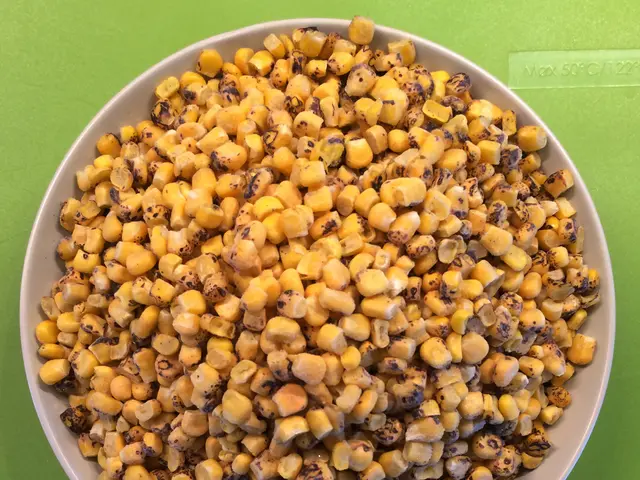7 Foods to Avoid If You Want to Prevent Stomach Bloating
Maintaining a flat stomach and minimizing bloat may be achievable by avoiding certain foods, according to Dave Asprey, a four-time New York Times bestselling author, health scientist, entrepreneur, and pioneer of biohacking. Asprey asserts that certain foods frequently considered healthy can in fact contribute to gut problems. Below are seven foods that can lead to significant bloating and increased belly fat.
Oats
While oats boast numerous health benefits, they may also lead to gas and bloat due to the presence of compounds called lectins. Lectins are antinutrients that can bind to minerals in the body, preventing their absorption, and bind to components in the gut lining, causing leaky gut. Asprey suggests substituting oats with steak and eggs for breakfast to ensure sustained energy and avoid bloating. In case carbohydrates are required, opt for cream of white rice, which lacks the lectins and antinutrients found in oats.
Raw Cruciferous Vegetables
Cruciferous vegetables, such as broccoli, cauliflower, brussels sprouts, and cabbage, are high in fiber and can cause bloating. Asprey suggests cooking these vegetables before consumption to help reduce the bloating-inducing compounds present in them.
Diet Soda
Asprey advises avoiding diet soda due to its high concentration of artificial sweeteners, which have been shown to disrupt the gut microbiome, leading to increased bloating.
Beans
Like oats, beans contain lectins that can cause leaky gut and bloating, as well as high levels of indigestible carbohydrates that generate gas. For a low-toxin carbohydrate option, Asprey recommends white rice.
High-Fructose Fruits
Fruits with high fructose levels often lead to bloating, especially in those who have fructose intolerance. Symptoms of this intolerance include gas and bloating. Fruits with high fructose content include dates, apples, and pears; individuals who experience these symptoms may wish to switch to lower-fructose alternatives such as blueberries, lemons, limes, and cantaloupe.
Protein Bars
Asprey cautions against protein bars, which typically contain a mix of fermentable fibers, artificial sweeteners, binders, nuts, and/or high-fructose fruits. Consuming these ingredients can cause an overactive gut microbiome, resulting in excessive gas production. Moreover, the protein in these bars is often low-quality soy, which contains phytoestrogens and may contribute to bloating. Instead, Asprey recommends obtaining protein from grass-fed meat.
American Wheat
Asprey explains that many individuals with gluten intolerance are able to consume bread with no issues when traveling to Europe due to differences in the wheat used. In the United States, wheat, particularly American wheat, often contains the herbicide glyphosate, which is linked to various health issues, including liver problems, cancer, and neurological complications. Additionally, U.S. wheat often contains various processing agents, such as potassium bromate, that may irritate the digestive tract. If you choose to consume wheat, opt for French wheat and ferment it, such as making sourdough, as fermentation increases digestibility.
In conclusion, Asprey encourages individuals experiencing bloating after every meal to consider gut dysbiosis, food intolerances, or low stomach acid as possible explanations. He suggests trying a two-week elimination diet, taking betaine HCl and digestive enzymes with meals, or following the Bulletproof diet to help address chronic gut issues.
- While oats may offer numerous health benefits, they can potentially cause gas and bloat due to the presence of lectins, a type of antinutrient that can bind to components in the gut lining, causing leaky gut.
- Asprey advises cooking cruciferous vegetables, such as broccoli, cauliflower, brussels sprouts, and cabbage, before consumption to help reduce bloating-inducing compounds.
- Diet soda should be avoided due to its high concentration of artificial sweeteners, which have been shown to disrupt the gut microbiome, leading to increased bloating.
- High-fructose fruits like dates, apples, and pears may lead to bloating, especially in those with fructose intolerance. Lower-fructose alternatives such as blueberries, lemons, limes, and cantaloupe may be a better choice for those experiencing symptoms of fructose intolerance.








